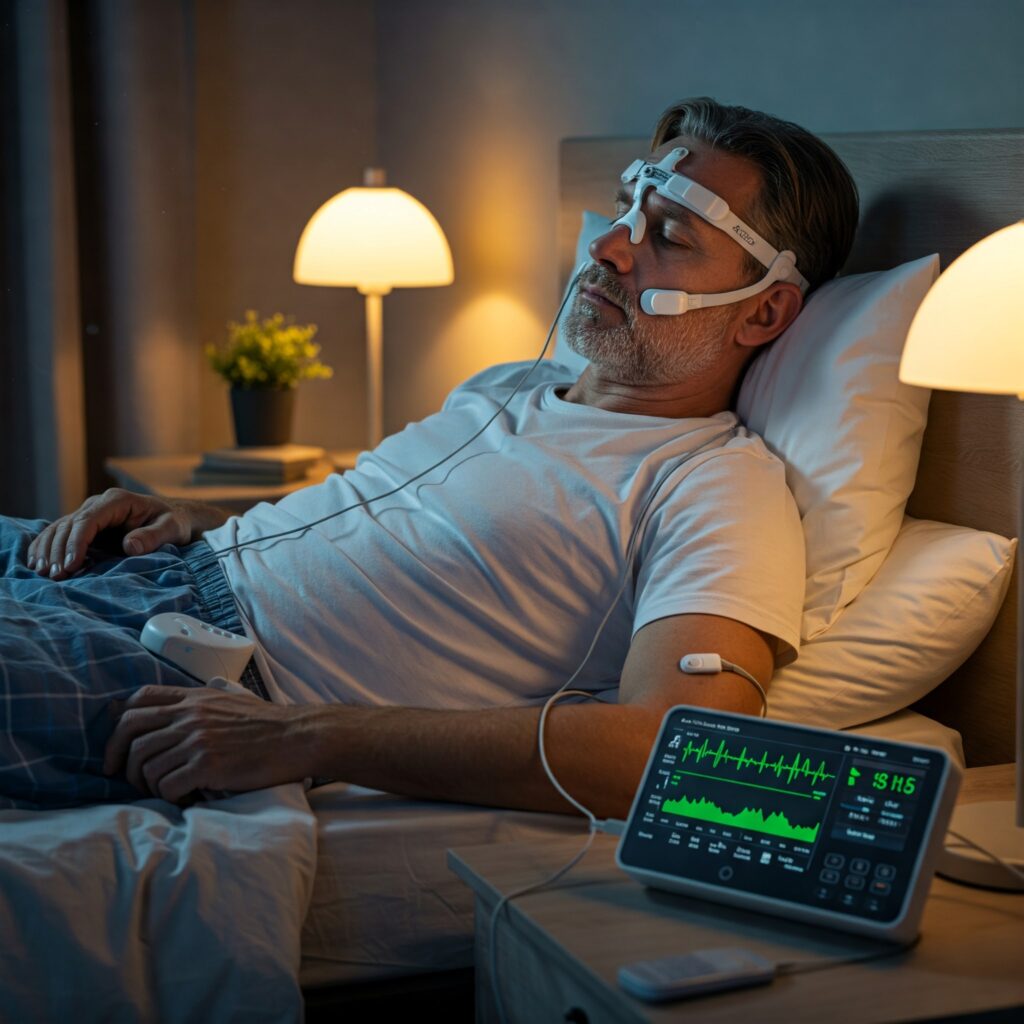At Keldik, you can complete most of your sleep tests from the comfort of your home. Home sleep apnea tests, also called HSAT, can be a convenient and cost-effective option for diagnosing sleep apnea.
What is a home sleep apnea test?
A home sleep apnea test is a simplified sleep study performed at home using portable devices, allowing for the diagnosis of obstructive sleep apnea. These tests measure key physiological parameters like heart rate, oxygen levels, and breathing patterns, providing valuable information for identifying sleep-disordered breathing.
How a home sleep apnea test works:
- Sensors and Devices: The test involves wearing sensors like a finger pulse oximeter (to measure oxygen levels), a nasal cannula (to measure airflow), and a chest belt (to monitor breathing effort).
- Data Collection: These sensors are connected to a small data recorder, which captures the information throughout the night.
- Analysis: The collected data is then sent to a sleep specialist for review, who interprets the results to determine the severity of sleep apnea.

Benefits of Home Sleep Apnea Tests:
- Convenience: Patients can complete the test in the comfort of their own home, making it more convenient than a sleep study in a sleep lab.
- Accuracy: Home tests can offer a more accurate reflection of how someone typically sleeps, as they’re in their usual sleep environment.
- Reduced Anxiety: The familiar surroundings can reduce anxiety associated with sleep studies in a clinical setting.
Limitations of Home Sleep Apnea Tests:
- Not Always Appropriate: Home tests may not be suitable for all patients, particularly those with more complex sleep disorders or conditions like sleep walking, REM sleep behavior disorder, or prior to an MSLT.
- Data Quality: Home tests can sometimes encounter issues with data quality, such as sensors falling off, which can impact accuracy.
- Incomplete Data: Home tests typically don’t capture the same level of detail as in-lab polysomnography, which uses more sensors to monitor various physiological functions.
Our Home Sleep Apnea Test process
Home Sleep Apnea Studies collect less data than in-lab tests. After you return the collecting device to our clinic, our team will do an initial review to make sure that sufficient data was collected. The study is then forwarded to a technologists that will get the data ready for final interpretations. Most home sleep studies collect between 800 and 1000 EPOCHs, or pages, or data. After the data is scored, a sleep specialist will review the collected data to determine any potential sleep disorders. A final report is usually generated within 2 weeks of completing the test.
Follow-up after a Home Sleep Study:
- If your test was ordered directly by your primary care doctor or another specialist, the final report will be sent back to the ordering provider.
- If your test was ordered by a sleep medicine provider from Keldik Sleep Medicine Clinic, our staff will contact you.
- Most test reports are very complex and require a follow up visit to review potential treatment options and future evaluations.
- Some tests are very simple and can be reviewed over the telephone.